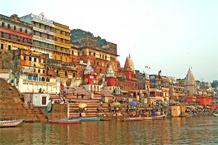articles

Target cities include Lhasa, Kyoto, Varanasi, Najaf and Rome where religion plays a dominant role in urban development
New Leverhulme trust research fellowship to study conflict in holy cities.
Professor Mick Dumper has been awarded a 3 year Major Research Fellowship by the Leverhulme Trust to study why conflicts arise and how they are managed in holy cities in different parts of the world. Commencing in September 2015, the project, entitled Power, Piety and People: The Politics of Holy Cities in the 21st Century, will draw on research previously carried out in divided cities. However, this award will focus on the “holiness” of a city in order to explore the relationship between the religious features of a city and the conflicts that occur in them.
Target cities include Lhasa, Kyoto, Varanasi, Najaf and Rome where religion plays a dominant role in urban development. These cities are characterised by particular forms of land use and property ownership, by the acting out of public rituals such as services and processions, by certain types of employment and by significant monumental construction in the form of holy sites. One of the tasks of this project is to develop a working definition of a holy city so that the kinds of conflict they exhibit can be contextualised and studied in a more systematic manner. “The presence of holy sites in cities can create forms of conflict which are more intense and more intractable than other forms of conflicts” argues Professor Dumper. “In view of the combination of greater religious activity by the population at large and also the rapid in-crease in urbanisation, this is an urgent topic for examination. The project will provide a much needed deeper and more nuanced un-derstanding of these kinds of conflicts.”
Date: 17 November 2015
